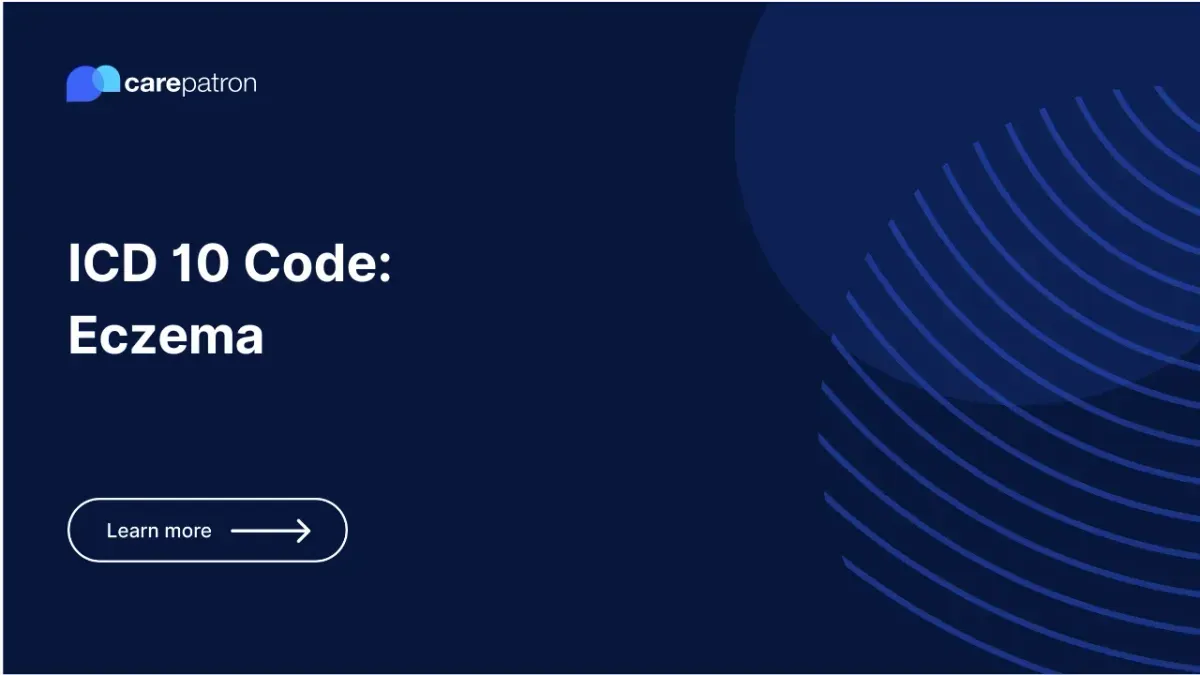
ICD-10-CM codes for eczema
Learn the ICD-10-CM codes for eczema and related dermatitis conditions, including allergic and irritant types.
Use Code
EHR and practice management software
Get started for free
*No credit card required
Free
$0/usd
Unlimited clients
Telehealth
1GB of storage
Client portal text
Automated billing and online payments
